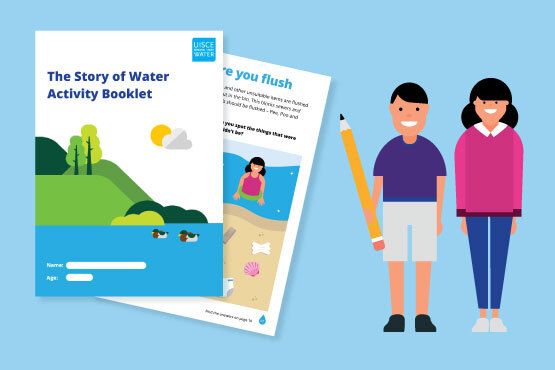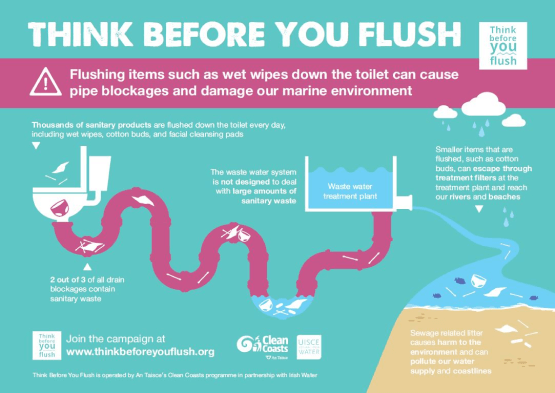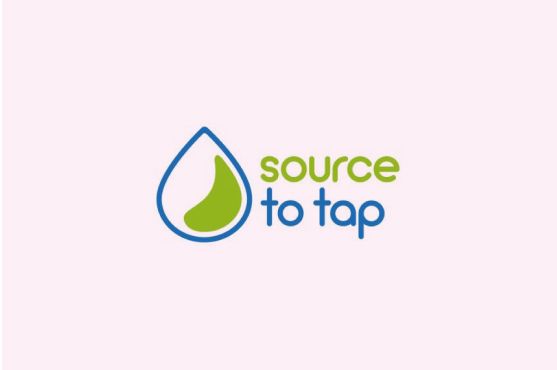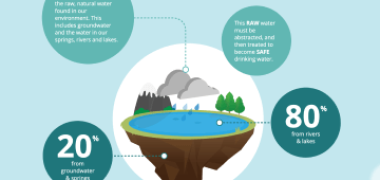Water education
Water is amazing. Without it, there would be no life and our planet would be a completely different place. But how much do you really know about it?
Explore the water network
Water goes on a remarkable journey so you can drink it from your tap. The water that leaves your home or school through sinks, baths and toilets also needs to be made safe.Learn about the stages water goes through with our interactive pages, or download a printable version.

The Story of Water activity booklet
There is so much to learn about water and how we can help save it. Discover more about the story of water through lots of fun activities with 'The Story of Water Activity Booklet'.
The Story of Water
Our documentary tells the story of our most precious natural resource, the threats to its future, and what is being done to fix the problems.
Our changing climate and conservation
In this chapter of the documentary we learn that by using only what we need, we can all play our part in protecting our water for the future. Find out more about what we can all do to reduce our usage, and how schools play an important role in educating about the value of water.
How to use less water
These 6 tips are designed for teaching water conservation in schools and homes.Print off the colourful poster and discuss the tips with your class or children.
Turn off the tap
Take quick showers
Flush less often
Save that water
Stop dripping taps
Keep chilling
The 7 stages of water treatment
Everyday we treat 1.7 billion litres of water for use in homes and businesses throughout Ireland. Watch these videos featuring the Ballymore Eustace Water Treatment Plant, and take a journey through the 7 stages of water treatment. This treatment plant is the largest in Ireland, supplying over 1 million people across Dublin and Kildare.

Think before you flush
Every day thousands of items are flushed down the toilet that should be put in the bin. Only the 3 P's should be flushed down the toilet - pee, poo and paper. Flushing sanitary and other items down the toilet blocks our sewers and has a big impact on our sea, beaches, and wildlife. The campaign is operated by An Taisce's Clean Coasts programme and is supported by Uisce Éireann.
Green-Schools
Green-Schools is an award programme for Irish primary and secondary schools. It help students to learn about the environment, including water conservation and efficiency. As part of the programme, school children save millions of litres of water every year. Uisce Éireann sponsors the water theme of the An Taisce Green-Schools Programme.
Green-Schools teacher resources
Green-Schools has plenty of fun resources for your school to learn all about water. Browse activities, lesson plans, fact sheets and other educational material.

Scoilnet
Scoilnet is the Department of Education and Skills official portal for teachers and schools. It provides openly accessible digital resources for use in teaching and learning. Uisce Éireanns' educational resources are available on Scoilnet, to help students learn all about water in a fun and engaging way with videos, fun activities, and support material. Check out the resources at the link below.

Source to Tap
Source to Tap is a cross-border partnership project focusing on the River Erne and the River Derg catchments which cross the border between Ireland and Northern Ireland. The education programme provides learning opportunities that educates children about water's journey from source to tap and how our use of water impacts on its quality along the way. There are online resources available at the link below.



